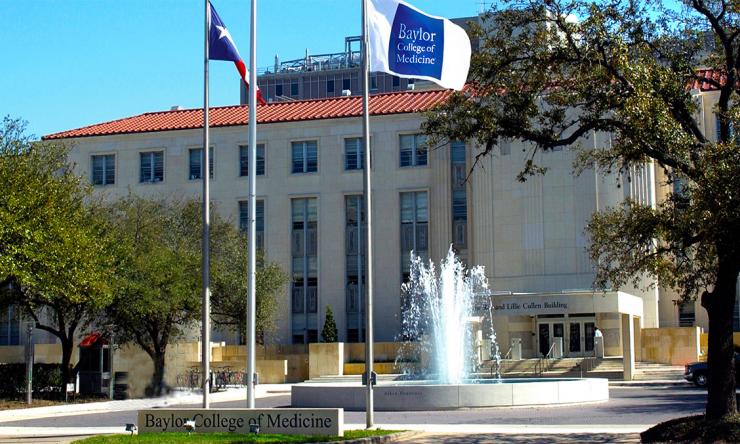BCM partners with largest autism study celebrating five years of genetic research
SPARK (Simons Powering Autism Research), the world’s largest autism research study, has mobilized more than 100,000 people with autism to participate in scientific research, while inspiring 150,000 of their family members to enroll as well. Baylor College of Medicine marked SPARK’s fifth anniversary by highlighting its contributions as a partner. Baylor, in affiliation with Texas Children’s Hospital, is one of a select group of more than 30 research institutions across the nation chosen by SPARK to assist with recruitment for this study.
SPARK is a nationwide study seeking to uncover causes of autism by collecting behavioral information and saliva DNA samples from individuals with autism and their biological family members. SPARK is led statewide by Dr. Robin Kochel, associate professor of pediatrics-psychology at Baylor and associate director for research at the Texas Children’s Hospital Autism Center.
"This year marks the five-year anniversary of the most significant effort to understand more about autism – the launch of SPARK. What we are learning from families and the pace at which we are moving is unprecedented." Kochel said. "SPARK is not only answering questions about new genetic differences related to autism but it also is a powerful resource that will shape all kinds of autism research for decades to come. This is why it is so important that families join now, so that their voice can be part of what we are learning about autism, now and in the future."
As a SPARK recruiter, Baylor is helping drive research to uncover the genetic causes of autism that may inform the development of targeted treatments and supports. To date, it has recruited and enrolled 6,120 people with autism and 5,607 family members as participants in SPARK.
An estimated 1 in 54 U.S. children has an autism spectrum disorder (ASD). Because it widely varies between individuals, it is challenging to study ASD holistically. While past decades have seen significant advances in autism research, more, large-scale research is needed to power clear and robust, reproducible findings. Baylor supports SPARK’s goal of powering innovative research to help people with autism live their fullest lives.
Baylor is a partner in SPARK’s network of 31 clinical sites of top research centers and academic institutions across the country. Each site works with its existing patient populations and through community outreach, playing a central role in SPARK recruitment.
“Today, thanks to SPARK’s 250,000 individual and family participants, the important work of Baylor College of Medicine and other clinical site partners, we have many more answers about autism than just five years ago,” said Dr. Wendy Chung, SPARK’s principal investigator, a geneticist and pediatrician. “Genetic research continues to yield new insights that are moving us toward individualized approaches to treatment and more effective support for those who need it — and that progress will accelerate as even more families join the SPARK research community.”
SPARK catalyzes advances in autism science in two major ways. Close to 100,000 study participants have provided DNA samples via a simple saliva kit. Scientists analyze the DNA individually and collectively to develop deeper insight into the genetic changes that contribute to autism. While scientists have identified more than 150 genes and segments of chromosomes related to autism, likely several hundred more genes have yet to be identified. As more individuals with autism participate in SPARK, as well as their biological parents and siblings, researchers will identify these genetic changes.
Secondly, SPARK families receive ongoing invitations from scientists to participate in new autism research studies through SPARK Research Match, enabling research on everything from biology to behavior. In both cases, access to a large number of people with autism and their genetic and medical information has a powerful multiplying effect.
In just five years, SPARK’s impact on autism research has been significant and measurable:
- Since launching in 2016, over a quarter of a million people, including 100,000 people with autism, have joined SPARK.
- DNA from 50,000 participants, including 23,000 people with autism, has been sequenced and made available to qualified researchers.
- SPARK has notified just under 700 participants about a genetic cause for their autism.
- 33,676 families have taken part in more than 100 SPARK Research Match studies, ranging from the study of a neurobiological basis of atypical language development, to a clinical trial for a specific genetic cause of autism, to repetitive thinking patterns in autistic adults. scientific
- 179 scientists have requested and used SPARK data to further autism research.
- Over 30 published scientific papers have used SPARK data, making discoveries about motor impairments, the impact of COVID on children and adults, and rare and common genetic risk variants, associated with autism.
- Using SPARK Research Match, researchers have published an additional 10 scientific papers on topics ranging from special interests to depression in autistic adults and the impact of COVID-19 on the autism community.
SPARK also has partnered with national and local autism community organizations across the nation to help find research participants and spread the word about this landmark study.










